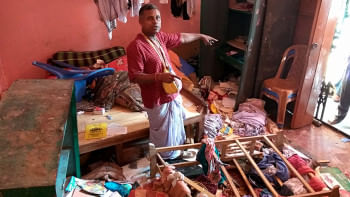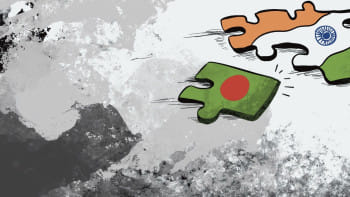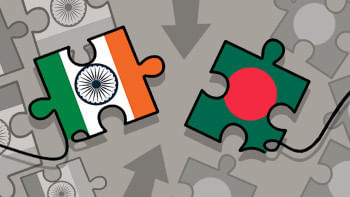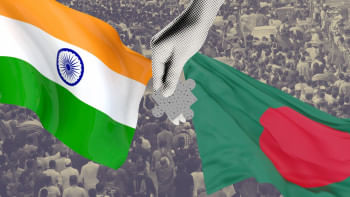Dhaka-Delhi ties must be defined by respect and fairness

The first high-level talks between Bangladesh and India should be seen both as a recognition of the challenges straining our bilateral relationship and as a welcome attempt to recalibrate it in light of the new reality following Bangladesh's political changeover four months ago. During his daylong visit to Dhaka on Monday, Indian Foreign Secretary Vikram Misri held separate discussions with Chief Adviser Prof Muhammad Yunus, Foreign Adviser Touhid Hossain, as well as his Bangladeshi counterpart Md Jashim Uddin. Media reports on the meetings indicate that both camps used the occasion to address key areas of contention while laying the groundwork for what they hope to be a mutually beneficial partnership.
This is something we indeed welcome, as a constructive partnership between our two nations is essential not only for addressing existing challenges but also for unlocking the vast potential of mutual cooperation in areas of shared interest. The first step in that direction, as Prof Yunus has rightly pointed out, would be addressing the "clouds" or sources of tension that have overshadowed our relationship in recent months—a responsibility that India must lead on, given its involvement in these issues.
Chief among them is the harmful narrative propagated by certain Indian media outlets and politicians regarding the treatment of minorities in Bangladesh, which undermined its reputation and sovereignty and even led to assaults on its diplomatic missions. It is imperative for the Indian authorities to take decisive steps to counter such propaganda to prevent continued erosion of trust between our peoples. Of equal concern are Sheikh Hasina's inflammatory speeches and statements coming out of her place of refuge in India, which is further fanning tensions and divisions. While Vikram Misri has emphasised that India's ties with Bangladesh transcend party politics, the continuation of such rhetoric from its territory must be prevented to rebuild confidence in our shared journey.
The longstanding issue of border killings—with the Indian Border Security Force (BSF) gunning down a suspected cattle lifter along the Panchagarh border as recently as Friday—remains another test for the durability of the drive to recalibrate our partnership. The recurring loss of Bangladeshi lives at the border contradicts the spirit of neighbourly interactions. While we acknowledge India's concerns about border crimes, there is no justification for extrajudicial killings. We urge India to adopt humane and sustainable solutions to all border law enforcement issues.
Among other key bilateral issues discussed during the talks are trade, agreements on transboundary rivers, including the Teesta, flood management, electricity imports from India and beyond, Rohingya repatriation, etc. The future of our ties with India will largely depend on how it responds to Bangladesh's position on these and other issues. One thing is certain, however. Increasing collaboration and cooperation from both sides will not only boost regional stability and economic integration, but can also help build a partnership that is reflective of the aspirations of both nations.
We value our ties with India, and appreciate its desire to work closely with the interim government. But going forward, our relationship must be grounded in mutual respect and fairness.


 For all latest news, follow The Daily Star's Google News channel.
For all latest news, follow The Daily Star's Google News channel. 












Comments